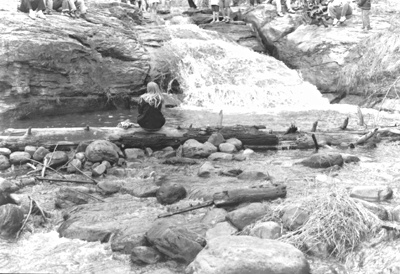All Nonfiction
- Bullying
- Books
- Academic
- Author Interviews
- Celebrity interviews
- College Articles
- College Essays
- Educator of the Year
- Heroes
- Interviews
- Memoir
- Personal Experience
- Sports
- Travel & Culture
All Opinions
- Bullying
- Current Events / Politics
- Discrimination
- Drugs / Alcohol / Smoking
- Entertainment / Celebrities
- Environment
- Love / Relationships
- Movies / Music / TV
- Pop Culture / Trends
- School / College
- Social Issues / Civics
- Spirituality / Religion
- Sports / Hobbies
All Hot Topics
- Bullying
- Community Service
- Environment
- Health
- Letters to the Editor
- Pride & Prejudice
- What Matters
- Back
Summer Guide
- Program Links
- Program Reviews
- Back
College Guide
- College Links
- College Reviews
- College Essays
- College Articles
- Back
Questioning Giants MAG
Tolearn to think is to learn to question. Those who don't question never trulythink for themselves. These are simple rules that have governed the advancementof science and human thought since the beginning of time. Advancements are madewhen thinkers question theories and introduce new ones. Unfortunately, it isoften the great and respected thinkers who end up slowing the progress of humanthought. Aristotle was a brilliant philosopher whose theories explained much ofthe natural world, often incorrectly. He was so esteemed by the scientificcommunity that even 1,200 years after his death, scientists were still trying tobuild upon his mistakes rather than correct them!
Brilliant minds canintimidate up-and-coming thinkers who are not confident of their abilities. Theyoften believe they are inferior to the minds of giants such as Aristotle, leadingmany to accept current paradigms instead of questioning them. Science leaps amajor hurdle every time people think for themselves and realize that evenrespected thinkers are human too, and their thoughts are not law.
I, likemany thinkers of the past, once believed in my mental inferiority. I was certainthat my parents, my teachers - adults in general - were always right. They werelike a textbook to me; I didn't question what was written on those pages. Irespected them, and accepted whatever they told me. But that attitude soonchanged. My mind's independence was first stimulated in the classroom.
Astern, 65-year-old elementary-school science teacher once told me that light is atype of wave. She said visible light is part of the electromagnetic spectrum, andit behaves like a wave, nothing else. I confidently went through years of schoolbelieving that light is a wave. In fact, each new science teacher verified thisfor me. One day, however, I heard the German exchange student, with his crazilystyled hair, mention that light could be made up of particles. As the otherslaughed at his statement, I started to question my beliefs.
Maybe theteachers and textbooks hadn't given me the whole story. I went to the library,did some research and learned of the light-as-a-wave versus light-as-a-particledebate. I read about Einstein's discovery of the dual nature of light and learnedthe facts of a paradox that puzzles the world's greatest thinkers to this day.Light behaves as both a particle and a wave, it is both at once. I realized I hadgone through life accepting only half of the story as the whole truth. I knew Icould never let that happen again. When I confronted one of my teachers with whatI had discovered about the nature of light, he simply glanced at the lamp on hisdesk and said, "Really, I wasn't aware of that."
Each newyear brought more new facts, and I formulated even more questions. I found myselfin the library after school, trying to find my own answers to gain a morecomplete understanding of what I thought I already knew. I discovered that myparents and teachers are incredible tools in my quest for knowledge, but they arenever the final word. Even textbooks can be challenged. I learned to question mysources, I learned to be a thinker. I once believed that everything I learned athome and at school was certain, but I have now discovered to re-examine whennecessary.
Questions are said to be the path to knowledge and truth, and Iplan to continue questioning. How many things do we know for sure today that wewill question in the future? At this moment, I am certain man can never reach thespeed of light. I know that our sun will burn for another five billion years, andI know nothing can escape the gravity of a black hole. This knowledge, however,may change in the next 20 years - maybe even in the next two. The one thing wecan control now is our openness to discovery. Questions are the tools of openminds, and open minds are the key to intellectual advancement.

Similar Articles
JOIN THE DISCUSSION
This article has 1 comment.

0 articles 0 photos 12292 comments